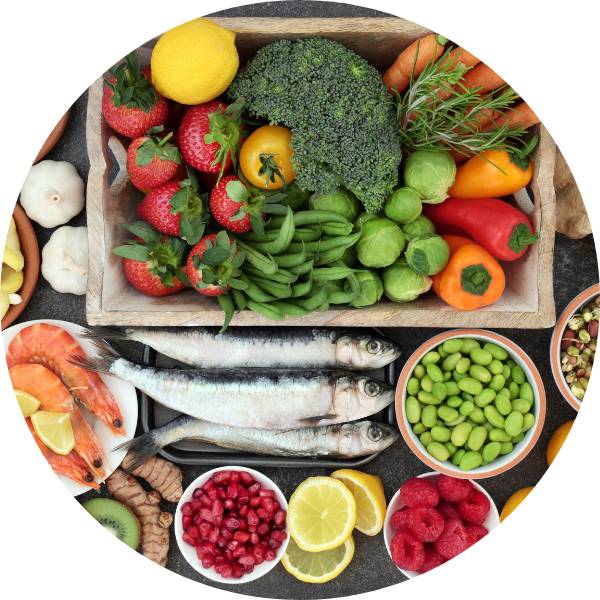Nutrition and Dietetics Services
Between what you hear on TV and read in the news or on the internet, making sense of healthy eating can be a real challenge. But it doesn’t have to be. A registered dietitian/ nutritionist (RDN) at the GVSU Family Health Center will partner with you to develop a safe and realistic eating plan that you can stick with for the long haul. To guide and motivate you, an RDN will use creative and individualized strategies to help with meal planning, grocery shopping, and mindful eating.
The GVSU Family Health Center offers free nutrition counseling with Clinical Dietetics Graduate Students under the direct supervision of a Registered Dietitian (faculty). This is a free service to all patients, GVSU students, and community members with no requirement to be an established patient. There is also no limit on the number of times these services can be utilized.

What is a Registered Dietitian?
Registered dietitians/nutritionists (RDNs) are health professionals who translate the science of healthy eating into a realistic game plan for life. A registered dietitian practices the science of medical nutrition therapy. Based on your health history and nutritional status, condition, illness or injury, a dietitian will work with you to ensure you get the proper nourishment for optimal health and wellness.
Specifically, an RDN can help:
- Lower cholesterol and triglyceride levels to normal
- Lower body weight, which reduces the risk for many chronic diseases associated with obesity
- Improve blood glucose levels and control high blood pressure, reducing or eliminating medications for diabetes and hypertension
- Provide ways to adjust your habits so your diet helps you achieve your long term goals.
Nutrition Services
The GVSU Family Health Center’s nutrition services are available to assist with a variety of concerns including:
- Weight management
- Diabetes
- Food insecurity
- Anorexia and bulimia
- Kidney disease
- Food allergies (including celiac disease)
- Heart conditions
- High blood pressure
- High cholesterol
- Irritable bowel syndrome
- Cancer
- Pregnancy and childhood nutrition

